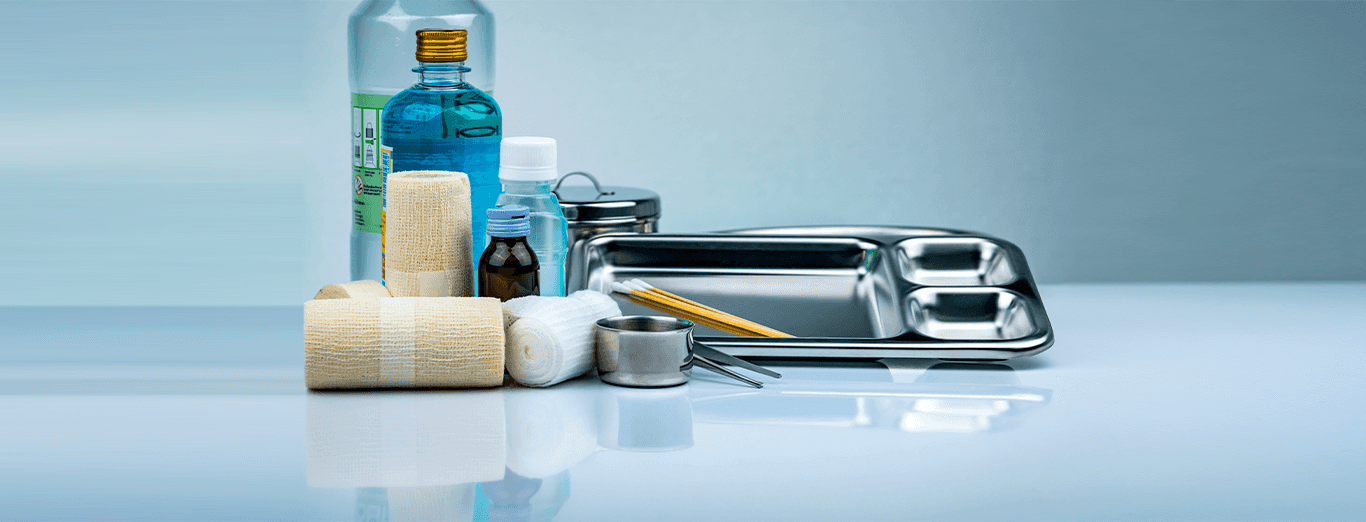
nurse for surgical wound at home
what is a surgical wound?
A surgical wound is a cut or incision in the skin produced during surgery using a scalpel. A surgical wound might also be caused by a drain that was put during surgery. Thus surgery wound healing The size of surgical wounds varies widely. Sutures are normally used to seal them, however they are sometimes left open to heal.
types of surgical wounds:
Surgical wounds are divided into four types. These classifications are based on how polluted or clean the wound is, the risk of infection, and the location of the wound on the body.
Class I: These are considered clean wounds. They exhibit no symptoms of infection or inflammation. They frequently affect the eye, skin, or vascular system.
Class II: These wounds are termed clean-contaminated. Although there are no symptoms of infection, the wound is at a higher risk of infection due to its placement. For example, surgical wounds in the gastrointestinal tract may be at increased risk of infection.
Class III: A surgical wound polluted by an outside item that has come into touch with the skin has a significant risk of infection. A gunshot wound, for example, may contaminate the skin around the surgical repair site.
Class IV: This type of wound is dirty-contaminated. These include wounds that have come into contact with feces.
There are other type of surgical wounds that can occur and need dressing after fistula surgery is performed.
symptoms of surgical wound infections:
Surgical wound care is essential and constantly checked to ensure adequate healing. According to the Centers for Disease Control and Prevention Trusted Source, infections can damage simply the skin, tissue beneath the skin, or implants. Symptoms of any surgical wound infection may include, increased pain and redness surrounding the area, delayed healing, the presence of pus, a foul odor, or drainage from the wound
In rare circumstances, an infected surgical incision may seem dried out or deeper. Fever is also a typical symptom.
surgical wound infections diagnosed
A surgical wound infection can be diagnosed by inspecting the site, analyzing symptoms, or conducting a culture of fluid drained from the incision.
dressings for surgical wounds – treated
A dressing is a sterile pad or wrap that is put to a wound to aid healing and protect it from further injury. A dressing is used to make direct touch with a wound, whereas a bandage is used to keep a dressing in place.
Personal choice dictates how frequently and for how long a surgical wound should be treated. Some units leave wounds open from the time they are closed, others after 24 hours, and still others keep them clothed until full healing has occurred and sutures/clips/wound staples are removed.
nurse for surgical wound dressing
Wound dressing at residence is simple and eliminates complications-A wound must be cleansed completely and the proper type of dressing is necessary as soon as it arises. A nurse at home would do the same thing, preventing any diseases from spreading. If you have a severe wound that requires a lot of medical dressing, wound dressing at home is the best option for you. Fortunately Portea provides this facility to you at the comfort of your home.
It allows oneself and one’s family to learn about wound care practices – A wound might be the consequence of an accident or a post-surgical complication such as infection that necessitates surgical wound dressing. A home dressing nurse teaches you and your family while analyzing the type of wound and the type of dressing that must be maintained, offering advice on how to minimize complications and infection.
When wound care is performed at home, it naturally saves a lot of energy because there is no need to go out or travel to any medical facility or hospital, and thus the wound has adequate time to heal and avoid infection (aerial-as in pollution). The entire dressing is done in a relaxed state of mind and body, which speeds up the healing process by requiring you to rest and take care.
dressings for surgical wounds
The dressing’s primary role in closed surgical wounds is to absorb blood or haemoserous fluid in the immediate postoperative phase. There are several types of surgical wound dressings available, and the decision is frequently influenced by cost and personal preference.
The most generally used dressings are basic, low-adherent island dressings, although patients with sensitive skin should be cautious since some adhesives might induce responses. Blistering can develop when dressings are put under strain or over a joint where movement causes friction between the skin and the dressing.
The dressing should also be chosen with the patient’s needs in mind. If the patient is being treated as a day case, for example, a showerproof dressing may be most suited if it is needed for longer than 24 hours.
surgical wound complications
Dehiscence and infection are the two most common consequences in surgical incisions. Dehiscence can range from skin layer breaking to total muscle and fascia dehiscence, exposing internal organs. The skin layers may stay intact in certain cases, but deeper layers break down, resulting in an incisional hernia.
Redness, discomfort, heat, and swelling of the wound and peri-wound region are symptoms of wound infection. These symptoms are also observed in a typical inflammatory reaction, although they normally fade within a few days. Infection may be indicated by persistent inflammation or the presence of pus or purulent discharge. Factors influencing wound infection are similar to those influencing dehiscence, with the exception that drains and sutures operate as foreign bodies and increase the risk of infection.
Doctor Consultation
Nursing
Physiotherapy
Trained Attendant
Elder Care
Mother & Baby Care
Lab Tests
Medical Equipment
Speciality Pharma
Critical Care






